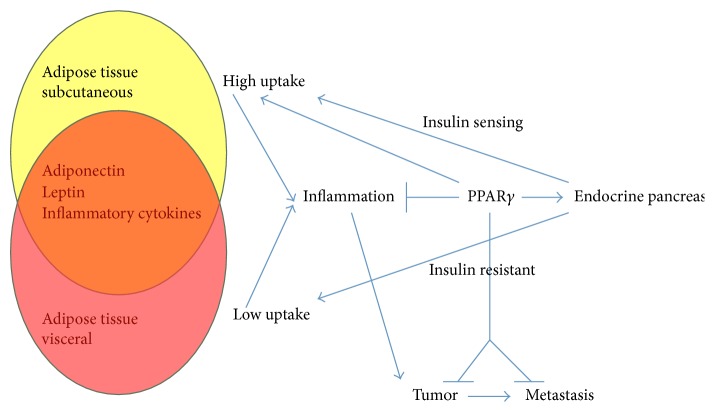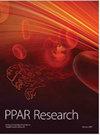Research Advances in the Correlation between Peroxisome Proliferator-Activated Receptor-γ and Digestive Cancers.
IF 3.5
3区 医学
Q2 MEDICINE, RESEARCH & EXPERIMENTAL
引用次数: 7
Abstract
Peroxisome proliferator-activated receptor-γ (PPARγ) is a class of ligand-activated nuclear transcription factors, which is a member of type II nuclear receptor superfamily. Previous studies demonstrate that PPARγ is expressed in a variety of tumor tissues and is closely associated with the proliferation and prognosis of digestive system tumors by its roles in mediation of cell differentiation, induction of cell apoptosis, and inhibition of cell proliferation.

过氧化物酶体增殖物激活受体-γ与消化道肿瘤相关性研究进展。
过氧化物酶体增殖体激活受体-γ (PPARγ)是一类配体激活的核转录因子,是II型核受体超家族的成员。既往研究表明,PPARγ在多种肿瘤组织中表达,并通过介导细胞分化、诱导细胞凋亡、抑制细胞增殖等作用与消化系统肿瘤的增殖和预后密切相关。
本文章由计算机程序翻译,如有差异,请以英文原文为准。
求助全文
约1分钟内获得全文
求助全文
来源期刊

PPAR Research
MEDICINE, RESEARCH & EXPERIMENTAL-
CiteScore
6.20
自引率
3.40%
发文量
17
审稿时长
12 months
期刊介绍:
PPAR Research is a peer-reviewed, Open Access journal that publishes original research and review articles on advances in basic research focusing on mechanisms involved in the activation of peroxisome proliferator-activated receptors (PPARs), as well as their role in the regulation of cellular differentiation, development, energy homeostasis and metabolic function. The journal also welcomes preclinical and clinical trials of drugs that can modulate PPAR activity, with a view to treating chronic diseases and disorders such as dyslipidemia, diabetes, adipocyte differentiation, inflammation, cancer, lung diseases, neurodegenerative disorders, and obesity.
 求助内容:
求助内容: 应助结果提醒方式:
应助结果提醒方式:


